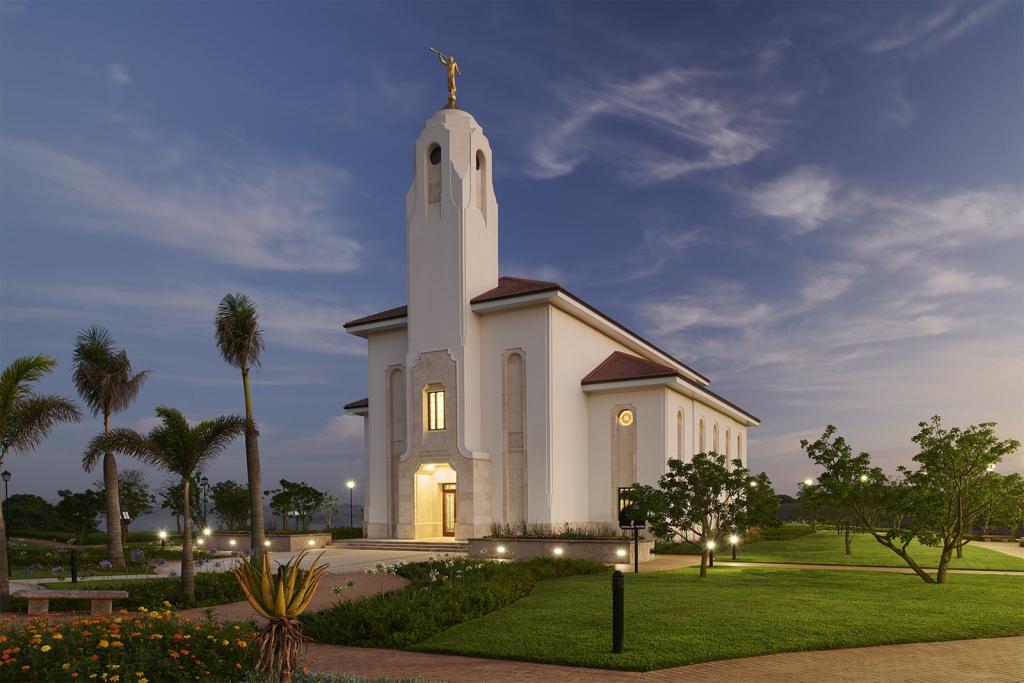
Shown above, in a photo from the LDS Media Library, is the newly completed Durban South Africa Temple, which will be dedicated shortly.
Surely, you’re saying to yourself, this series will eventually find an end! And, in fact, that’s what I’ve been thinking for quite some time. But interesting material continues to appear, so I press on. This may well be the last installment, of course. But I’ve thought so before . . .
Anyway, the impetus for this current entry comes from a new comment from Peter J Reilly, a thoroughly non-Latter-day Saint contributor to Forbes who is a specialist in tax questions, especially as they relate to religious organizations.
“I have been a CPA for over 30 years focusing on taxation,” he writes. “I have extensive experience with partnerships, real estate and high net worth individuals. My ideology can be summarized at least metaphorically by this quote [from the Irish poet and writer Brendan Behan (1923-1964)]: ‘I have a total irreverence for anything connected with society except that which makes the roads safer, the beer stronger, the food cheaper and the old men and old women warmer in the winter and happier in the summer.'”
He has written a piece — another one; this is not his first — on the recent controversy about the finances of the Church of Jesus Christ of Latter-day Saints that was stirred up by an “exposé” in the Washington Post:
“Most of what I know about Mormonism,” Reilly says, “comes from research for tax stories.”
You can review his reasoning for yourself. I’ll give y0u his bottom line:
“The main source of outrage is that they seem to have saved up too much money. I think this qualifies as a unique problem for a church. Frankly, I don’t have a dog in the fight, but I think the outrage, which is compounded by lack of transparency is a little overblown.
“Remember that Mormons were severely persecuted in the 19th Century. Church years are the opposite of dog years. 150 years ago is not that long ago in the history of a church. So adopting a policy of paying for everything out of current funds and putting aside some every year in case something really, really, really bad happens is reasonable. . . .
“If that really bothers you, you might not really want to be a Mormon. If that’s the case and you still want to go to church, you will have no problem finding a church where things are hand to mouth.
“I came out pretty early that I don’t think there is really anything here for the IRS to look at.”
And, plainly, he still holds to that view. Which will be a great disappointment to certain critics, who have really hoped that this, finally, at last, would be a weapon with which to give the Church a sound beating.












